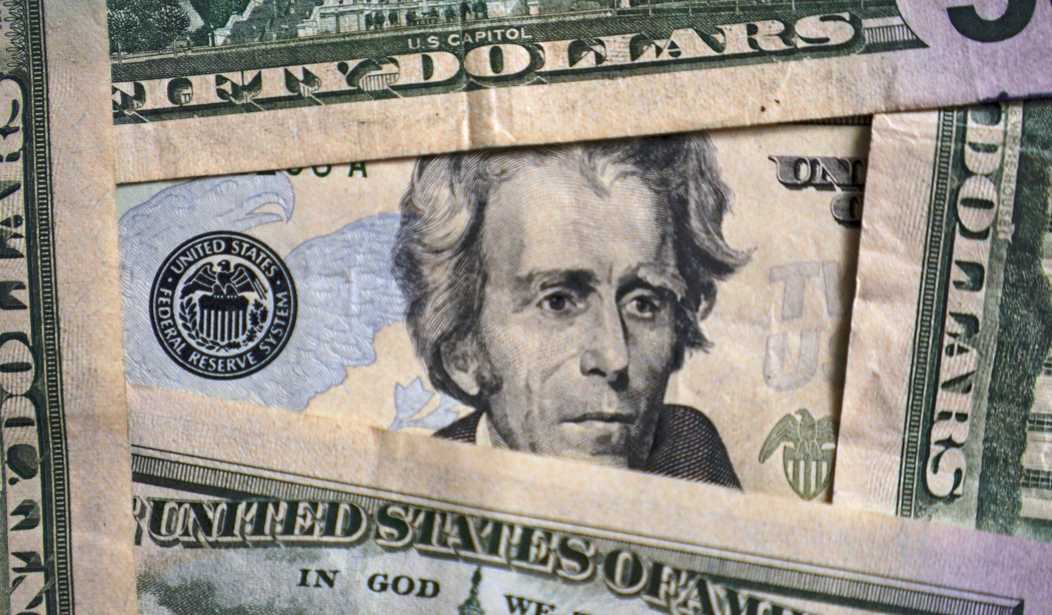Prices are threads stitching together the fabric of our economy. They guide countless producers, here and abroad, to meet the most urgent demands of countless consumers. Prices enable the economic coordination of millions of individuals -- each with his or her own unique preferences, skills and resources -- with no need for a central planner. They direct entrepreneurs and innovators, signaling where opportunities lie and where resources are most needed.
Prices are guardians of scarce resources, ensuring that these are allocated to their most valuable uses. Prosperity results from the encouragement given to the production of goods and services that people desire most.
There is someone else who sees the price system for its beauty and would like to protect it from continued government interference: the Cato Institute's Ryan Bourne. He has an excellent new book, "The War on Prices: How Popular Misconceptions about Inflation, Prices, and Value Create Bad Policy." It includes 24 essays written by some of the best economists in the business, each addressing a different aspect of today's war on prices -- the widespread and counterproductive ways governments are trying to control inflation or particular prices.
The book opens with a discussion about the largest bout of inflation in 40 years. After an explanation of why it's still with us (note: it's not corporate greed or the war in Ukraine), Bourne takes us on a tour of yesterday's bad policy ideas, including wage and price controls implemented under Presidents Franklin Roosevelt and, later, Richard Nixon.
The book then addresses misconceptions about inflation's causes. One of the most frustrating is the notion that the term covers increases in the prices of certain goods or services. In 2021, for instance, we were told for months that the inflation was nothing more than the result of pandemic restrictions on some supply chains. When the war in Ukraine broke out, inflation was then falsely blamed on the resulting rise in oil prices.
But as one contributor, Pierre Lemieux, explains, a change in relative prices -- when only the prices of some things rise -- is quite different from inflation, which occurs when all prices, including wages, eventually rise. While we can't blame the public for its confusion, economists and politicians have no excuse for ignoring this distinction.
Recommended
Yet in 2021, the people in charge often failed to see the difference. The Federal Reserve too long didn't identify the price hikes as inflation. To be sure, there were some shocks to the supply of plenty of things, but these weren't the main reasons all prices were going up. Demand, fueled by government spending and the desire to spend easy money (including all those stimulus checks) was the main culprit. As such, the institution tasked with price stability let inflation run loose and the buying power of each dollar sink for too long.
Part two of Bourne's book is about what tends to come next in times like these: government-imposed price controls. Eamonn Butler reminds us that "government attempts to curb rising prices and wage costs are as old as recorded history." From controls on grain in Fifth Dynasty Egypt to 1970s energy price controls, to the rent or health care controls we're still accustomed to, politicians of all stripes are frequently tempted to simply declare price hikes unlawful.
But because these are typically cheap attempts to control a symptom of inflation -- or to mask poor policies that made something scarce and expensive in the first place -- price controls fail spectacularly. They leave in their wake misallocations of resources, shortages, diminished product quality, black markets, and contempt for the law. As the book makes clear, similar problems arise with minimum-wage statutes and other government efforts to keep prices and wages artificially high.
The book's last section is on the value judgments driving the war on prices. Whether these be emotion-laden claims that "CEOs are paid too much" or that "rents are too high," they're often the result of uninformed opinion rather than careful economic analyses. In one chapter, my colleague Liya Palagashvili dispels the idea that it's unfair for companies such as Uber or Lyft to charge different prices at different times. What some people see as unfair, economists like Palagashvili see as a way to prevent shortages and long waiting times.
Prices and wages set on market dynamics reflect underlying economic realities and then send out a signal for help. Price controls only mask these realities, which inevitably worsens the economy's ability to respond to what ordinary consumers and workers need.

























Join the conversation as a VIP Member